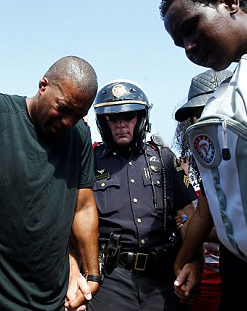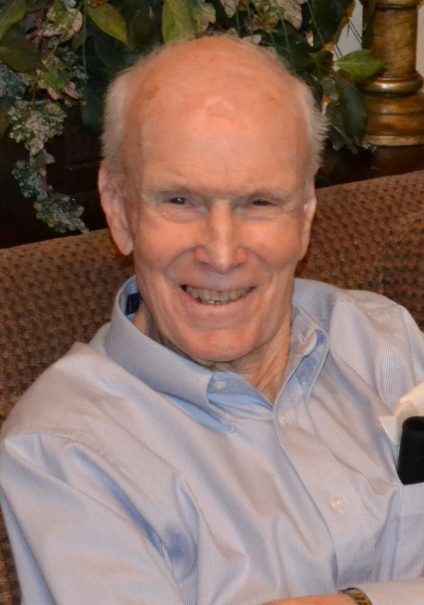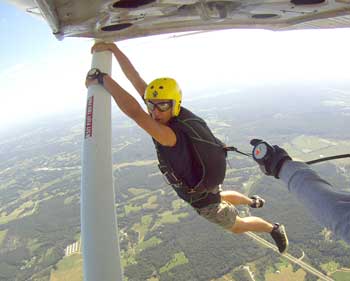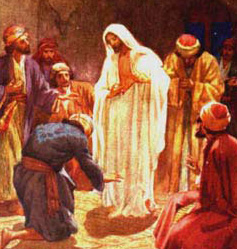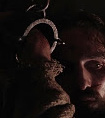 Background Passages: Matthew 13:1-23, Mark 4:1-20, Luke 8:1-15
Background Passages: Matthew 13:1-23, Mark 4:1-20, Luke 8:1-15
“Like locusts,”
Peter marveled,
“descending on a field of grain.”
The disciple commented on the crowd
gathering for the Master’s teaching.
Another day.
Another multitude.
James.
A disciple of Christ.
The son of Alphaeus.
Not the fisherman.
Raised his head.
Glanced back at the mass of humanity
spreading out across the mountain.
Muttered his agreement.
“Give them credit,” said James.
“They’ve come a long way in this heat
just to hear his words of wisdom.”
James watched Jesus working his way
among the crowd.
So full of energy.
Eager to engage each person on a personal level.
Stretching almost as far as he could see,
hundreds of men, women and children
congregated on the dusty hillside.
Turned its landscape into a
blossoming field of flowing robes.
Stretching their necks to catch a glimpse of the man who…
Worked miracles.
Fed thousands.
Healed the infirmed.
Spoke more clearly than any rabbi.
James shook his head in wonder.
Leaned hard against the prow of the boat.
He and Peter
pushed the small fishing vessel
into the warm waters of the Sea of Galilee.
Gave their Master a platform from which to speak.
The multitude settled at last to understand more about
the carpenter turned rabbi.
Many shouted out.
Sought answers to their most pressing questions.
“Who are you exactly?”
“Why are you here?”
“What must we do?”
Questions James had heard since the
Jewish leaders began their disinformation campaign
accusing Jesus of every type of heresy in the Law.
James watched.
Jesus waited
for the tide of questions to ebb.
Amid the silence of anticipation,
Jesus pointed to the distant hillside.
“See that farmer?”
The crowd turned to look.
James chuckled under his breath,
at the sound of rustling robes turning in unison.
The Farmer.
Stood straight against the weight of the
heavy seed bag tied around his waist.
Every two or three steps he stopped.
Dipped his hand bag.
With a casual and practiced flick of his wrist,
he cast seeds across his small plot of land.
“My work is much like his,” said Jesus,
“Sowing seeds of God’s truth to those who will hear.”
As the crowd turned back, he asked,
“Will you listen?”
“A farmer went out to sow his seed…”
James sat at Jesus’ feet as he always did.
Mesmerized
by every word.
Marveled
that the simplest illustration held such elaborate truth.
Awestruck that Jesus could pull a lesson of
immortal value from the
most mundane acts of life.
*
Sermon ended.
Service began.
Jesus and the disciples moved through the crowd.
Helping in any and every way they could.
James thought about the parable
throughout the day as he worked.
Unsettled.
Uncertain.
Uneasy.
He missed something.
He was sure of it.
At last,
the crowd dispersed.
Jesus sat around the campfire surrounded by
his most trusted followers.
Exhausted from the day’s ministry.
As was their habit,
they sat around the campfire…
Talking quietly.
Reflecting privately.
Discussing intimately.
Debating meaning and intent of the words they heard.
Jesus.
Sat against a fig tree.
Arms across his chest.
Head back.
Eyes closed.
Listening, but not looking.
James.
Shuffled from group to group.
Listened intently to the conversations.
Contributed little as he processed what he heard.
He found himself standing beside the tree where Jesus sat.
More nervous than usual when alone with Jesus.
Kicked the toe of his sandal against a root,
hoping that Jesus would notice his presence.
Finally, he cleared his voice.
“Jesus.
Are you awake?”
Jesus.
Didn’t move a muscle though
a rueful grin broke across his face.
One weary eye opened.
One eyebrow raised.
“I wish!” He groaned.
Glancing up at the young disciple,
“What do you need,
my friend?”
.
James looked sheepishly at the others around the fire,
feeling inside that they knew things he did not know.
“That parable you told today…
about the farmer…
What exactly did it mean?”
Jesus arched his back.
Pushed away from the trunk of the tree.
Grasp his knees and pulled them to his chest.
Speaking in a voice loud enough for all the disciples to hear,
“Among all men, you are fortunate.
The secrets of the Kingdom of God have been revealed to you.”
James chuckled again as the rustle of their robes
reminded him of the crowd on the hillside.
Closing his eyes as if thinking of the multitude,
Jesus shook his head.
“The others…the people…
I speak in parables to help them understand.
So they can see what they may not see.
Hear what they may not understand.”
He paused for a moment.
Searched their eyes.
Sensed their uncertainty.
“This is what the parable means…”
The explanation.
Lengthy and to the point.
The disciples listened.
Some nodded in agreement.
Some probed with further questions.
James sat silently.
Getting the point,
but still sensing a gap in his understanding.
Innate shyness prevented him from pushing for clarity.
Later.
Jesus leaned again,
alone against his tree.
The others congregated in small clusters around the camp.
Again in quiet conversation.
James.
Paced the edge of darkness.
Hands behind his back.
Deep in thought.
He found himself once again
standing beside the tree.
Silent.
Still.
Jesus again wearily opened one eye.
Raised one eyebrow.
Smiled slightly at the timid intrusion.
Spoke in a quiet, reassuring voice.
“Something bothering you, James?”
The young disciple
leaned against the tree.
Facing east to Jesus’ south.
Slid quietly to the ground,
letting the course bark scratch his back.
He settled in silence into a comfortable spot.
Always patient,
Jesus waited for his friend to speak.
After a moment, James said,
“I get most of it, I think.
You’re the farmer…at work in your world.
The seed…God’s truth. His word.
The different kinds of soil…hearers of His word.
Hard.
Rocky.
Thorny.
Fertile.”
James paused again,
unsure of his next thought.
James pressed Jesus for clearer understanding.
Deeper insight.
About the soil…the listeners.
“How can they hear the same word so differently?”
“What do you think?” Jesus asked.
“The hard soil.
On the surface, no pun intended,” he smiled.
“it seems to talk about the…
Determined opponent of God.
Disinterested in godly things.
Hard. Bitter. Beaten down by life.
Refusing to let any ounce of truth penetrate the surface.
Hardened to any possibility of faith.
Clearly, an unbeliever.”
“But, I think there’s more to it than that.”
Turning to Jesus he said,
“Isn’t it possible a person could be so wrapped up in doing good,
that he may no longer hear a new word from God?
So focused on his ministry that he misses other opportunities to serve?
Jesus.
Eyes still closed.
He said,
“True enough.
Look at the Pharisees.
So busy with ritual they never get to know God intimately.
So involved in “worship” they never practice what they preach.
Worship must be personal.
Must breech the hardness of our hearts
or it’s meaningless.”
Encouraged,
James pressed on.
“The soil on top of rocky ground…
Enough sustenance to sprout.
Not enough to grow.
Some listeners,
excited about the work of God,
try to live it daily.
Yet when crisis comes,
when they fall upon hard times,
they fall away.
Faith withers and dies.”
Jesus nodded.
“We must be grounded,
rooted in our faith,
if we are to withstand the difficulties
we will inevitably face.
Life is not easy.
A true life of faith even more difficult.
Setting our roots means we must be so grounded
in our study of God’s word
that we never lack for spiritual nourishment that sustains.”
James quietly quoted something Jesus said
in another time,
another place.
“If I say I love God and don’t evidence it in my life,
I’m a liar.”
Jesus laughed,
“You have been listening.”
The two men sat in silence for a while as James thought
deeply about what Jesus said.
The disciple took another deep breath.
“Let’s talk about the third soil…
Full of weeds and thorns.
Choking the life out of the good grain.
Bad attitudes and actions strangle life.
Good intentions get choked out by disbelief.”
James.
Energized.
Engaged.
Eager.
Sat cross legged facing Jesus.
Hands gesturing to punctuate his excitement.
“Lives get smothered by things that ultimately don’t matter.
We nit-pick each other over inconsequential things.
Kill our own spirit and the
spirits of those around us.”
Jesus.
Fully awake and animated
mirrored James’ posture.
Cross legged and leaning toward his friend.
He reached across the distance between them.
Slapped him on the knees.
“Now, you’re getting it!”
Jesus added,
“There is a tendency to lose the joy of salvation.
The dogs of life nip at our heels.
We let bias and prejudice get in the way of loving relationships.
Arguments over things…
great or small…
just don’t matter in the end.
It chokes our relationships.
Gets in the way of our ability to love one another.
Jesus’s eyes danced.
“Go on, James,” he urged,
“What about the good soil?”
James sat for a minute.
Stunned that he was enmeshed in this conversation.
“The good soil…
Fertile.
Rich.
Bountiful.
“Represents those of us who get it.
Those who understand what God desires of us.
Understand more clearly who you are.”
Those who take part in the harvest.
Bringing people to know you.
To accept your truth.
Jesus.
Shook his head.
“Think, James.
“It’s deeper than that. There’s more.
Keep digging.”
James found himself…
Prodded.
Probed.
Propelled beyond
convenience and conventional wisdom.
His mind raced.
Vaguely aware that others had gathered around.
Listening intently to the dialogue.
His finger punched in frustration at the ground beneath him.
“I don’t understand.
You’re not making sen…”
James stopped in mid-sentence.
Sat back.
Mouth opening and closing like a fish out of water.
His mind processing a new thought.
Quietly.
Thinking aloud.
“The farmer broadcast his seed in the field.
The field…
The field…
It’s the same field…
All of the soils.
Hard packed.
Shallow.
Thorny.
Fertile.
They’re all in the same field!”
Jesus leaned in…
Broad smile on his face…
“Sooooo…”
James looked at Jesus.
Tears of understanding welled in his eyes.
“They’re all me.
Every soil is me.
It’s not about how the multitude responds to the gospel,
it’s about how I respond.
I can be at times too hard…
too busy even in service to be of service.
I can be shallow and artificial in faith…
fainting at the first sign of adversity.
I can be overly concerned with things
that don’t matter in God’s grand scheme.
Hypercritical of others.
Or,
I can be productive, fertile…
fully responsive to the will of God in my life.
Jesus looked at James.
Eyes sympathetic and understanding.
“Knowing our capacity for failure is the
first step in avoiding the pitfalls.
Like I said before,
‘All have sinned and fallen short of the
glory of God.”
James wiped away tears with the sleeve of his tunic.
Embarrassed by his display of emotion.
Jesus.
Grasp the hand of his disciple.
Firm and reassuring.
“Don’t worry about the tears, James.
You’re in the good soil now.
You’re just watering your roots.”
*
Growing Deep Roots
I’m not sure about you.
This parable speaks to my faith…
crisply and clearly.
Identifying my life, at best, as a
spasmodic attempt to respond to the call of God.
Any honest evaluation of my life shows that I am…
Sometimes…
self-absorbed.
Busy acting good, rather than doing good.
Sometimes…
false and artificial.
Exhibiting a show of faith, without the substance of faith.
Sometimes…
Nit-picky and hypocritical.
Judging harshly the speck of sawdust in the eyes of others,
while ignoring the plank in my own.
Sometimes…
fertile and productive.
Stretching my roots into the deep, loamy soil of God’s truth.
Fully responsive to his will.
My prayer.
For me.
For you.
That we find time to listen to the voice that tells us…
We’re missing something important in God’s word.
To find the courage to sit at the tree where Jesus sits,
asking for clarity and understanding.
To dig deeper into familiar scripture.
To sink our roots into the fertile soil of truth.
May our tears of understanding
water the roots of our faith.

